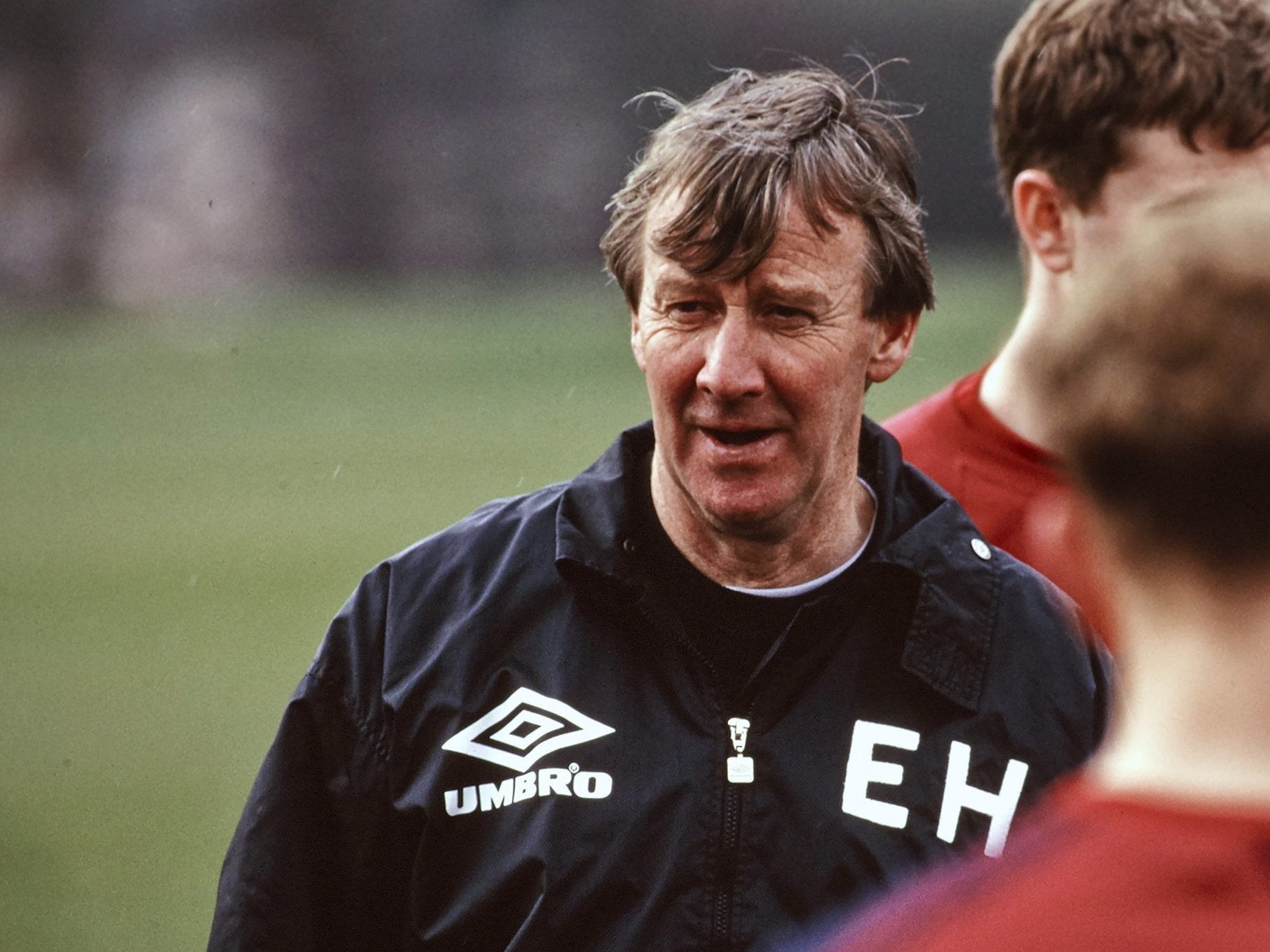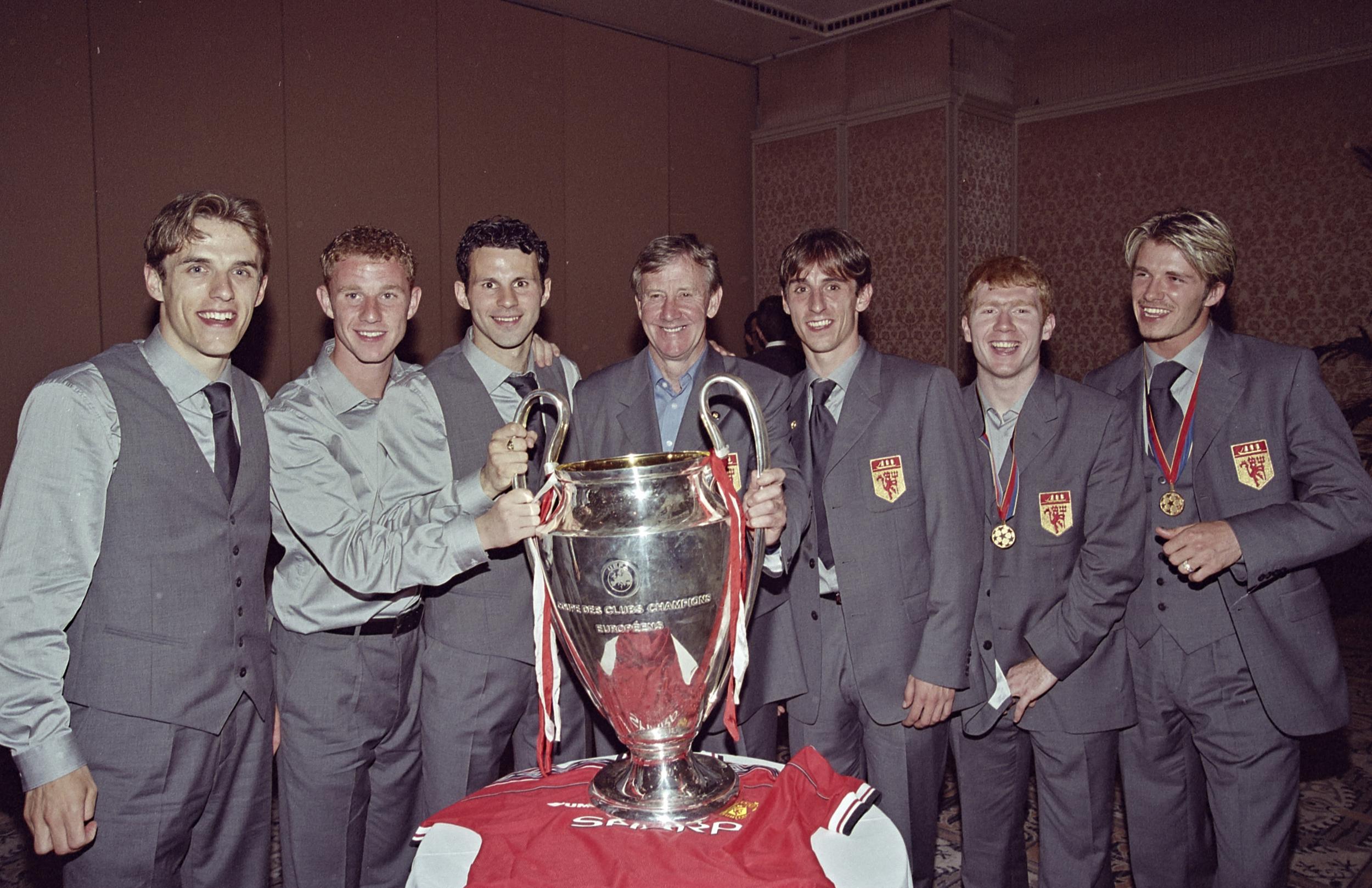Eric Harrison: Manchester United youth coach who mentored the class of ’92
Youth manager spent 27 years at the Red Devils and helped develop the likes of David Beckham and Ryan Giggs
Your support helps us to tell the story
From reproductive rights to climate change to Big Tech, The Independent is on the ground when the story is developing. Whether it's investigating the financials of Elon Musk's pro-Trump PAC or producing our latest documentary, 'The A Word', which shines a light on the American women fighting for reproductive rights, we know how important it is to parse out the facts from the messaging.
At such a critical moment in US history, we need reporters on the ground. Your donation allows us to keep sending journalists to speak to both sides of the story.
The Independent is trusted by Americans across the entire political spectrum. And unlike many other quality news outlets, we choose not to lock Americans out of our reporting and analysis with paywalls. We believe quality journalism should be available to everyone, paid for by those who can afford it.
Your support makes all the difference.Eric Harrison’s career as the coach who developed the players that helped to make Manchester United a trophy-winning machine under Sir Alex Ferguson was as stellar as his time as a midfield workhorse in the Football League’s lower echelons had been unspectacular.
Harrison, who has died aged 81, was a key member of United’s backroom staff for 27 years. The majority were spent as youth team manager, mentoring and moulding David Beckham, Ryan Giggs, Paul Scholes and numerous others who contributed to the silverware amassed by Ferguson’s teams.
His playing days offered few indications of glittering prizes to come. Between 1956, when Harrison joined Halifax Town, the club nearest his birthplace of Mytholmroyd, Yorkshire, and 1972, when he made his final senior appearance for Barrow, he played more than 500 matches in the third and fourth divisions. Even then, however, he was looking ahead, earning his coaching qualifications.
Harrison described himself as having been a “hard” player and strong tackler, adding: “I wasn’t frightened of putting my head in where it hurt.” His devotion to his trade and his team was exemplified by events on one Saturday in October 1962, when he got married in the morning and helped Halifax draw with Shrewsbury in the afternoon.
At his next club, Hartlepool United, he experienced an epiphany. In his 2001 autobiography, The View from the Dugout, he recalled that a new manager arrived. A brash character, who used his Monday team-talks to “slaughter” anyone who had performed poorly on Saturday, yet “made you feel 10 feet tall if you’d played well”. Harrison decided that if he ever had a team he would “make players feel 10 feet tall most of the time”. The newcomer was Brian Clough.

In 1972, after two spells with Barrow and stints at Southport and non-league Scarborough, Harrison moved into youth coaching with Everton. During his nine years at the club the team reached the FA Youth Cup final in 1977, after which he became assistant to manager Gordon Lee for three seasons. After Lee’s sacking in 1981, Harrison was invited by the new Manchester United manager Ron Atkinson – a former teammate for the RAF football team during their national service – to take over their youth-development programme.
By 1986, when Ferguson arrived from Aberdeen, he had taken players such as Mark Hughes, Norman Whiteside and Clayton Blackmore through to first-team level. Ferguson wanted a more prolific supply. Harrison argued he could deliver provided United invested in their scouting system. The Glaswegian agreed. The result was the class of ’92 which included Beckham, Nicky Butt, Gary Neville and Robbie Savage. Scholes and Phil Neville followed in 1993.
With the help of another Eric – Cantona – United’s “kids” soon began to accumulate Premier League titles and FA Cups. In 1998 Harrison retired as youth team manager but continued as coaching co-ordinator, working with groups from the under-nines to the under-16s. When Ferguson’s side reclaimed the European Cup in 1999 Harrison’s proteges sought him out at the post-match party and, in his words, “we all had a bit of a cuddle”.
Alongside the paternalism ran a disciplinarian streak. He defined his job as “90 per cent arm around the shoulder, 10 per cent kick up the backside”. Beckham, Giggs and Scholes were “fantastic” to coach because they allied technical ability to work rate, although he admitted he “had to teach them about team play”.

Harrison, who also assisted the then Wales manager Mark Hughes for four seasons, was diagnosed with dementia four years ago. Awarded the MBE for services to football in 2018 he was unable to travel to London and received the award at FC Halifax’s ground The Shay.
His final months were spent in a Halifax nursing home. There were visits by, among others, Beckham (who brought him a carrot cake he baked and a bottle of whisky), Giggs and Scholes. Hailed on his death by Cantona as “a great coach and a great man”, Harrison is survived by his wife of 56 years, Shirley and two daughters.
Eric George Harrison, football player and coach, born 5 February 1938, died 13 February 2019
Subscribe to Independent Premium to bookmark this article
Want to bookmark your favourite articles and stories to read or reference later? Start your Independent Premium subscription today.

Join our commenting forum
Join thought-provoking conversations, follow other Independent readers and see their replies
Comments